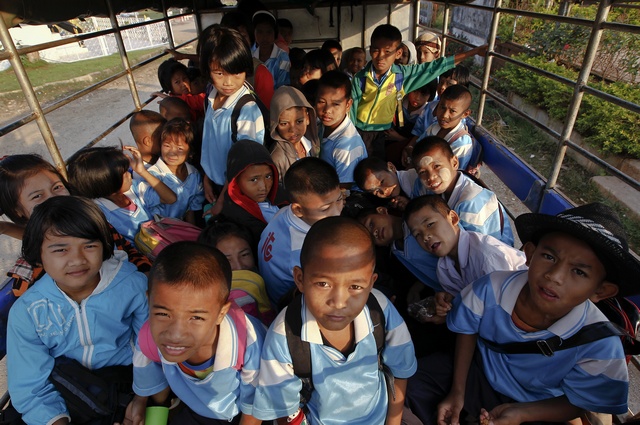The World Bank has announced it will provide US$100 million to expand the Burmese Ministry of Education’s School Grants and School Stipends Programme.
The money comes in the form of the World Bank’s Decentralising Funding to Schools Project, designed to ensure funding is made available to schools in impoverished, often overlooked areas.
According to the World Bank, current operating grant allotment to schools by the Ministry of Education is $250 per year for small schools, rising to $400 for medium-sized schools and $500 for large schools. In backing the existing government grant programme, the World Bank intends to lift this figure to targets of $900, $12,000 and $18,000, respective of school size.
Eleven-thousand children currently receive government-sponsored stipends to attend school under the School Grants and School Stipends Programme. The World Bank hopes to raise that to 100,000.
In a 20 May press release, the World Bank stated that “About 8.2 million students in Myanmar [Burma] will benefit from better-financed schools and more than 100,000 poor students will receive financial support to attend classes” by virtue of the project, funded by the World Bank’s International Development Association ($80 million) and the government of Australia ($20 million).
The stipend programme is to be rolled out over the next three years and is to include 40 townships across Burma.
While it is unclear whether schools will be required to spend the extra funds in particular ways, such as teacher training, the World Bank has issued operational guidelines for recipient-schools which encourage planning, transparency and community involvement in administering funds.
Further to this, according to the 20 May statement, the allocation of funds will be linked to measurable results, which the World Bank said was designed to make “sure that Ministry of Education’s focus will be on delivering results and building a data base to track the progress of students.”
The Bank has indicated that the grants and stipends programme will improve the quality of education available to school children in ethnic areas in particular.
Such a result would be welcomed by lobby groups such as US Campaign for Burma, who on Wednesday urged the World Bank to prioritise closing the gap in educational outcomes across Burma’s ethnic groups.
[related]
“It should be a priority for the World Bank and reformers in the Burmese government to reduce social and ethnic disparities in the school system, which have long been implemented by the Ministry of Education,” said Rachel Wagley, policy director of US Campaign for Burma.
“It’s critical to ensure that Bank engagement with the Ministry emphasises the promotion of conscientious education policy in ethnic areas, drawing on consultations with ethnic civil society and other groups that have faced deliberate educational discrimination in Burma over the past several decades.”
In 2012, reforms instituted by the current Union government allowed for languages other than Burmese to be studied at schools in ethnic areas, however only outside of official school hours. Despite this development, there remains a discrepancy in funding between schools in majority and ethnic areas.



